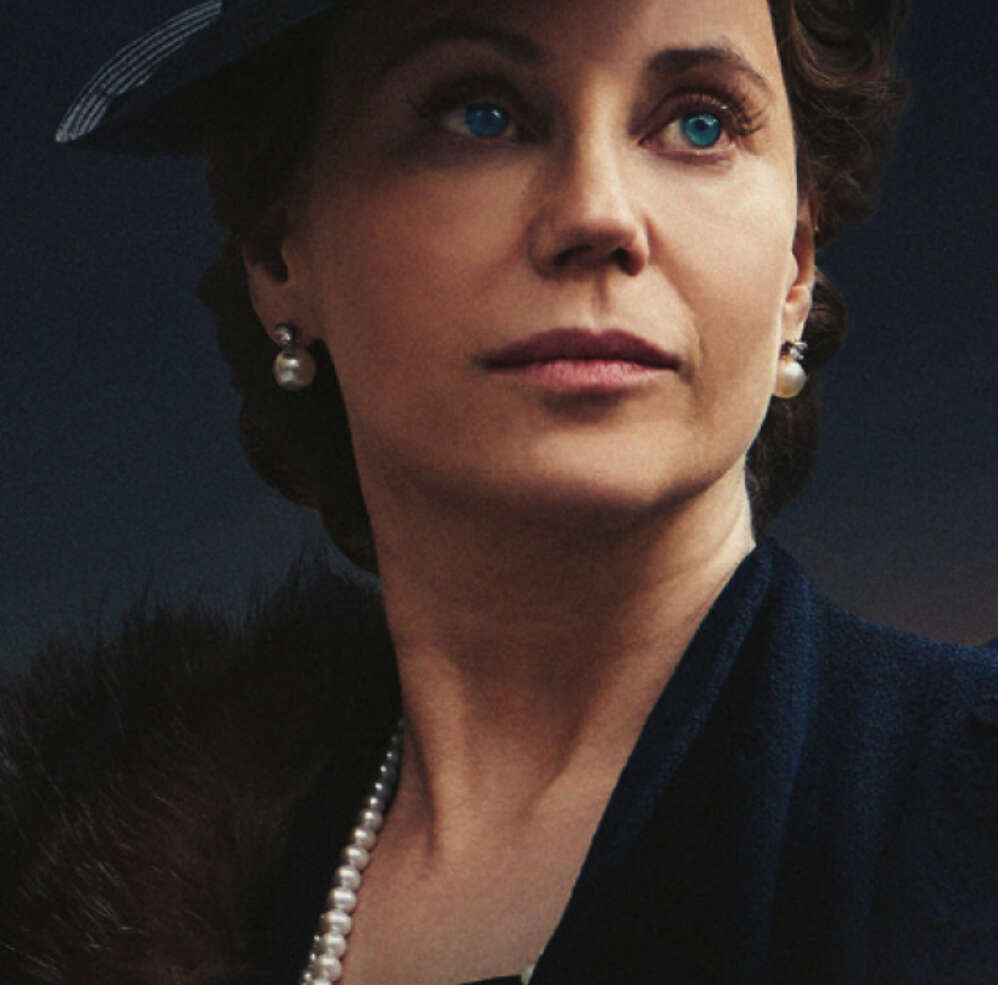WRITTEN BY: Annika Pham
We spoke to the Swedish star actress ahead of the launch of the TV drama Atlantic Crossing in which she plays Norway’s Crown Princess Märtha.

We spoke to the Swedish star actress ahead of the launch of the TV drama Atlantic Crossing in which she plays Norway’s Crown Princess Märtha.
What was your first reaction when you were approached to play in Atlantic Crossing? Had you heard of Crown Princess Märtha’s role during WW2 and close relationship with Franklin D Roosevelt?
Sofia Helin: I was actually surprised that I had never heard of the story of Crown Princess Märtha who had done something big for her country, democracy and peace during WW2. I had never heard either that she had a special relationship with Roosevelt. I wasn’t so much into royalty at the time but got interested in her at once, and immediately said yes to the part.
How did you prepare for your part?
SH: I prepared by going to the castle in Sweden and learned how to sit, walk, talk, eat, drink-in other words, behave in a ‘royal’ manner. I learned Norwegian for several months, and watched a lot of archive material about Märtha. I also studied other royals in Europe as many are related.
What particular aspect of Crown Princess Märtha's life did you find interesting? It seems like she was very committed to her duties, and she was also perceived as 'the queen of the people’ like Princess Diana...
SH: Yes I found interesting to find similarities between Märtha and Diana, the way they moved, behaved in front of the camera, with a mix of shyness and humour. I watched a speech that Märtha gave in front of more than 10,000 people in Madison Square Garden in New York. She was very uncomfortable but did it for the sake of democracy and freedom.
For me the bravest persons are those who dare to push themselves out of their comfort zone.
Diana and Märtha were also both compassionate women, who took on activities outside their royal duties. Diana helped people with Aids during the 80s and Märtha helped homeless people during WW2. She was politically engaged, but never took honours for what she did during the war.
How was it to play against Kyle MacLachlan and Tobias Santelmann?
SH: Both are gentlemen! It was a joy to see Kyle transform into FDR - with every little detail, like watching someone create a sculpture. Tobias is also extremely talented as an actor and a very warm person. Playing his wife was easy.
You've played Crown Princess Märtha and you've been the commentator of C More/TV4’s documentary Drottningarna (The Queens) featuring eight Swedish queens. Do you have a favourite one? What vision do you have of today's royals? Are they still relevant?
SH: One of the most interesting queens was perhaps Louisa Ulrika of Prussia [1720-1782], mother of Gustav III who was tough, power hungry and did a lot for Sweden’s cultural life. Today’s royals are like a big family and I do believe they are still relevant. Many try to use their status to do good, such as Queen Sylvia who has founded an organisation to fight against sexual abuse of children, and Crown Princess Victoria of Sweden who has been supportive of the #MeToo movement. I would definitely vote for them if I could!
Royalty and actors share the glamour and celebrity status that comes with responsibility. How strongly do you feel about using your star status to make a difference?
SH: I feel a strong responsibility to use my power as a public person. For instance, I’m ambassador for the international charity Water Aid which works in some of the world’s poorest countries to improve access to clean water and good sanitation. For example during Covid-19, three billion people don’t have access to water and soap so we work for that, and actually Crown Princess Victoria is a protector of this organisation so we’ve met several times.
I try to choose something and stick to that.
I also started the #MeToo movement in Sweden and created a model that could be used by all women in the country. I’m committed to gender equality, having a daughter. I know that we women can together with men, change the world for the better.
Your role as Saga Norén in The Bridge has made the world your open stage. How do you choose your parts today?
SH: I choose from my stomach and I’m fortunate enough to be able to do what I want.
How are you living the pandemic and how do you feel about the impact it has on the film industry and live performances?
SH: During the pandemic, I have been working all the time. I’m very fortunate and everyone around me is safe. Covid is a tragedy for so many people, but compared to countries like Yemen - where you don’t have access to clean water and soap, the situation for us in the Western world is not as bad. The pandemic will have consequences for everyone, but who said that life was going to be easy and that we would have progress all the time? We can’t take anything for granted.
I do sympathise for people in our industry who don’t get paid and have no savings, and it’s therefore important for governments to support culture, equally to other sectors of the economy so we can overcome this crisis.